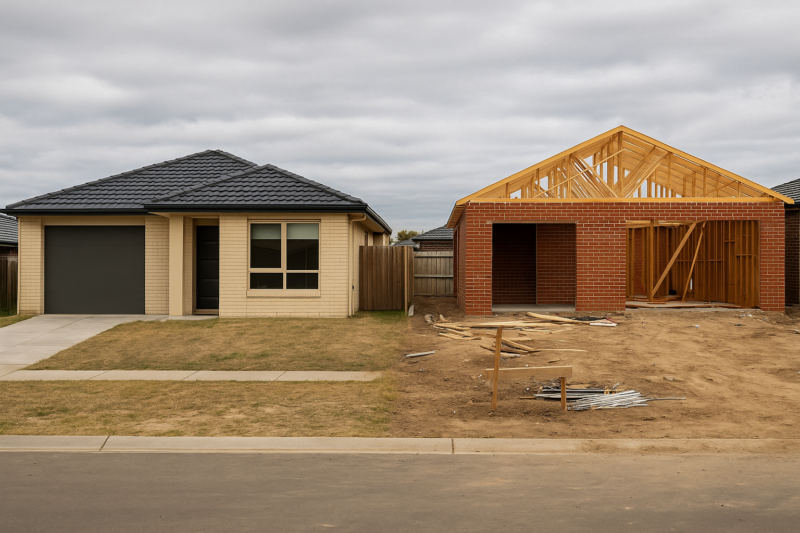In today’s evolving property market, where investors can no longer rely solely on strong capital growth, many are exploring property development as a way to manufacture equity and accelerate their wealth-building journey.
One of the most-read articles on our site remains How to Get Started in Property Development, and for good reason.
It’s an exciting, creative, and potentially lucrative path, but it’s not without its challenges.

So, what is property development?
At its core, property development is the strategic transformation of the built environment to meet the changing needs of society.
It’s about creating or reimagining spaces: homes, apartments, commercial buildings, infrastructure, that shape how we live, work, and play.
And the need for development is constant.
Australia’s population recently surpassed 27.5 million, and projections suggest we could reach 40 million by 2050.
That’s a staggering increase, with nearly a million new residents expected in just the next few years.
The question is: Where will they all live?
This population boom presents both challenges and opportunities, especially for property developers who are ready to meet the demand for housing and infrastructure.
What makes a successful property developer?
Property developers aren’t born, they’re made.
Success in this field comes from a blend of:
- Education and experience
- Creative vision and strategic thinking
- Resilience and adaptability
- Strong leadership and communication skills
Think of developers as movie producers.
They take an idea from concept through design, approvals, financing, construction, marketing, and finally, leasing or selling.
It’s a complex process that requires assembling a skilled team and guiding them toward a profitable outcome.
The development process
While every project is unique, most developments follow a similar sequence:
- Conceptualising the idea
- Refining and testing feasibility
- Negotiating contracts
- Securing approvals
- Formalising building contracts
- Managing construction
- Completing and marketing the project
- Ongoing asset management
Along the way, developers engage with councils, consultants, financiers, agents, neighbours, and future occupants.
It’s a dynamic and demanding role.
Who becomes a property developer?
You don’t need to be a full-time developer to get started.
Many successful developers began as investors, builders, architects, or professionals in unrelated fields.
Today, we’re seeing more part-time developers, people with “day jobs”, taking on medium-density projects in suburban areas to fast-track their wealth.
Do you have what it takes?
Before diving in, ask yourself:
- Do I understand property markets and investment fundamentals?
- Do I have the time and resources to manage a project?
- Have I built a reliable team of experts?
- Am I financially prepared for unexpected costs?
Property development can be incredibly lucrative, but it’s not for the faint-hearted.
Many beginners get caught out because they don’t know what they don’t know.
That’s why education is key. Invest in yourself before you invest in a project.
I have created considerable personal wealth for myself and security for my family through property development and investment.
And so can you.
Make no mistake; it’s going to be hard work, so I recommend that you don’t invest any money into a development project until you’ve first invested heavily in yourself and your education.
Want to get started?
At Metropole, we help investors become armchair developers, giving you access to wholesale property opportunities without the stress of managing the entire process.
Our Property Developer Program allows you to:
- Acquire property at developer’s cost
- Lock in immediate profits
- Leverage our expertise from concept to completion
We take care of the details so you can focus on building your portfolio.













